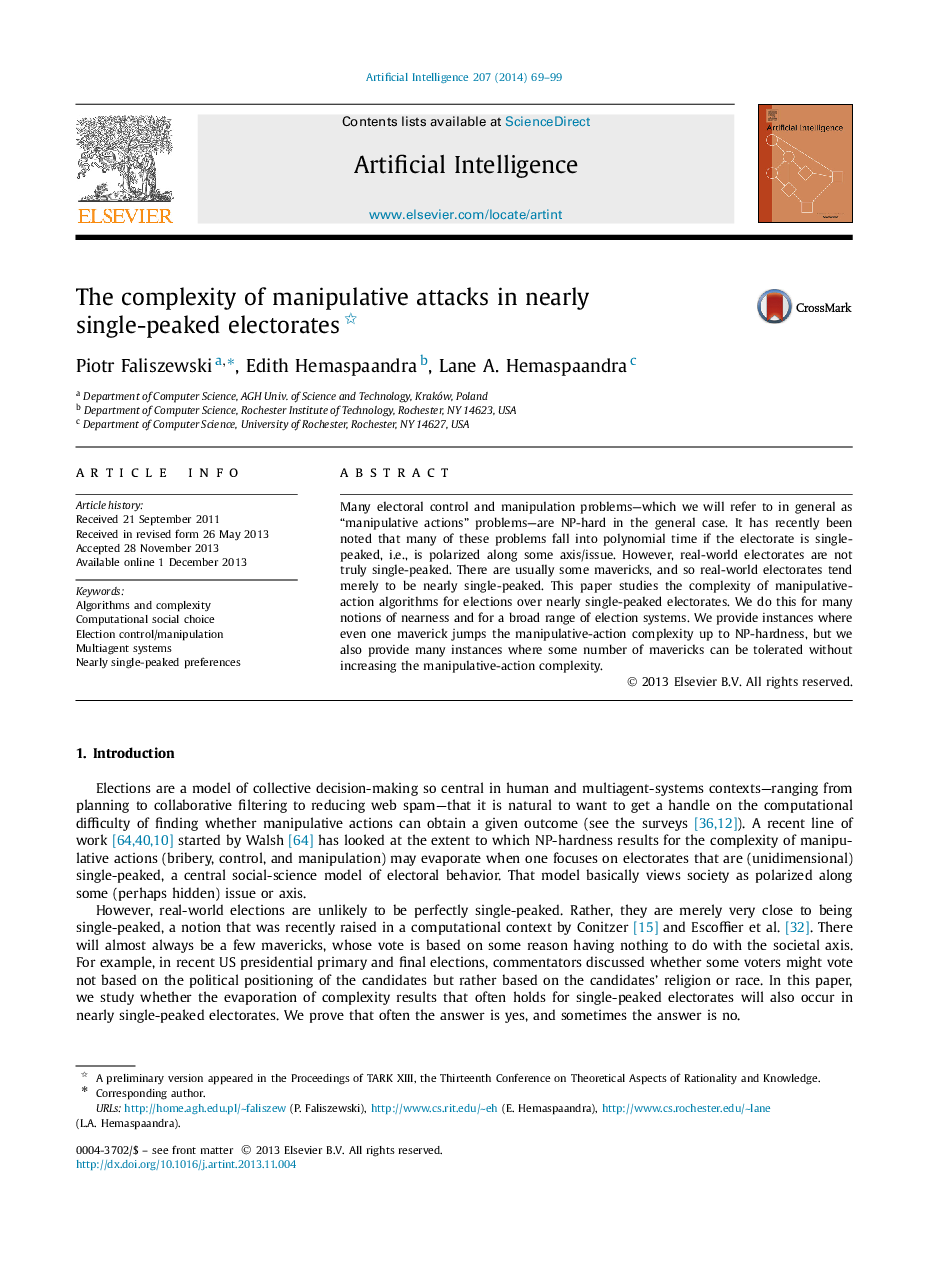| Article ID | Journal | Published Year | Pages | File Type |
|---|---|---|---|---|
| 6853264 | Artificial Intelligence | 2014 | 31 Pages |
Abstract
Many electoral control and manipulation problems-which we will refer to in general as “manipulative actions” problems-are NP-hard in the general case. It has recently been noted that many of these problems fall into polynomial time if the electorate is single-peaked, i.e., is polarized along some axis/issue. However, real-world electorates are not truly single-peaked. There are usually some mavericks, and so real-world electorates tend merely to be nearly single-peaked. This paper studies the complexity of manipulative-action algorithms for elections over nearly single-peaked electorates. We do this for many notions of nearness and for a broad range of election systems. We provide instances where even one maverick jumps the manipulative-action complexity up to NP-hardness, but we also provide many instances where some number of mavericks can be tolerated without increasing the manipulative-action complexity.
Related Topics
Physical Sciences and Engineering
Computer Science
Artificial Intelligence
Authors
Piotr Faliszewski, Edith Hemaspaandra, Lane A. Hemaspaandra,
